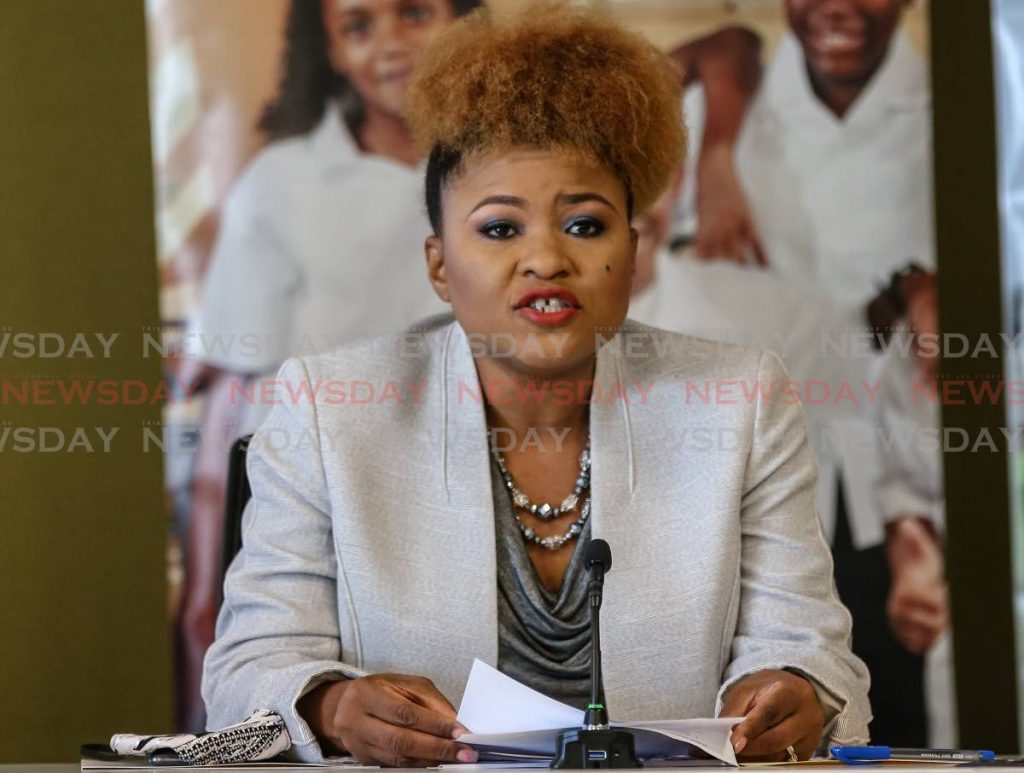National scholarships number slashed

IN A MOVE to cut costs amid a stagnating economy and with the threat of the global pandemic, Education Minister Dr Nyan Gadsby-Dolly has announced a major cut to the national scholarship programme, with the number of annual scholarships reduced to 100 from 400. This takes effect immediately.
She said on Friday that Cabinet decided to make “critical adjustments” to the programme and also the Government Assistance for Tuition Expenses (GATE) programme. The announcement came at a press conference at the Education Towers in Port of Spain.
She said the number of island scholarships offered over the years increased from five to ten in the 1960s and 1970s, then to 20 in the 1980s.
“By the year 2008, that number progressed to 261,” said Gadsby-Dolly, “reaching a maximum of 447 in 2014, then settling at 400 annually from 2016 to 2019.”
She said this has been a significant investment by government, adding that between 2008 and 2019, over 1,586 national scholarships were awarded, at a cost of about $800 million.
“No more than ten – five open and five additional – will be awarded in each of the ten cognate groupings (subjects) based on the performance of the top ten students in the cognate group,” she announced. “The award of these scholarships will be based solely on academic achievement.”
The ten cognate groups are business studies; creative and performing studies; environmental studies; general studies; humanities, information communication and technology studies; language studies; mathematics; natural sciences and technical studies.
Gadsby-Dolly also announced the introduction of a National Bursary Programme which will benefit 500 local Caribbean Advanced Proficiency Examinations (CAPE) students. They must have completed the exams in two consecutive years in form six, including the year of award.
“Students who have not been awarded a national scholarship but attained at least eight units at grades one and/or two…are eligible to apply for a national bursary.” For medical students, the bursary will include a first-time book allowance of $9,711 and $5,711 annually. Non-medical students will receive a first-time book allowance of $8,062 and $4,062 annually.
Bursary recipients will also receive 100 per cent GATE funding for study at a local institution. In order to qualify, students’ courses of study must align with “priority areas of development”; they must complete a means test; and they must be involved in extra-curricular activities or contribute to their community or the country.
The bursary programme will also take effect immediately, based on this year’s CAPE results. Revisions to GATE have also been made. Gadsby-Dolly said GATE funding will be provided for one programme only, up to undergraduate level. Funding for post-graduate programmes is discontinued. “Students currently enrolled in postgraduate programmes will receive GATE funding until August 2021 (and) students currently enrolled in undergraduate programmes will continue to be funded for the normal duration of the programme,” she said.
The HELP Loan will still be available for tertiary students, she said, through commercial banks in partnership with the government.
She said 100 per cent funding will be available to students with a monthly household income below $10,000 and 75 per cent funding for students with a monthly household income between $10,000-$30,000.
GATE will fund 50 per cent tuition for students with a monthly household income between $30,000 and $75,000. Where the household income is above $75,000 a month, students will not be eligible.
President of the UWI Guild of Students Warren Anderson said while students are concerned about the future of education, the new policies take existing students into consideration, for which they are grateful.
“We had a baseline expectation that would make things at least comfortable for people already in programmes and that it wouldn’t be a shock to them, so we are satisfied those currently in undergraduate programmes can complete it under GATE.”
However, Anderson is concerned for the future of students newly enrolled in postgraduate programmes. He said the measures assume postgraduate students can afford programmes on their own because they are working, which is not always the case.
He also said now that GATE will no longer cover postgraduate students, many will be adversely affected, not just by the additional cost, but by their marketability.
“People pursue a postgraduate degree to become more marketable and GATE would have assisted with that greatly…For a long time the job market has demanded people get more than a first degree to be competitive.” He said while he understands the dire economic need for cutbacks, but GATE-assisted programmes helped address some of the needs of the economy.
Second vice president of the TT Unified Teachers’ Association Kyrla Robertson-Thomas also said the association is hoping this is not the final decision from the ministry.
“It would really be disheartening if students cannot access scholarships, which is the only way some of them would really be able to attain their degrees,” she said. “They need the help of the government to achieve their potential.”
Gadsby-Dolly said the changes will allow for “greater equity in distribution of precious resources” and will focus assistance where it is needed most.

Comments
"National scholarships number slashed"